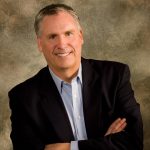Nine Practices to Accelerate Your Learning Power

Professional Development
September 29, 2017
Kay Peterson
Topics
Character-based Leadership, Leadership, Management
Tom Friedman, the New York Times columnist, and author believes the rate of change has become so rapid that it now outpaces our current ability to adapt. In order to manage during this disorienting instability, leaders need to learn faster and better. Just how do leaders accelerate their learning power?
Here are nine practices based on nine learning styles described in How You Learn Is How You Live: Using Nine Ways of Learning To Transform Your Life, that you can use immediately to improve your learning—and leading-- power:
Be mindful.
If you’re going through life on autopilot, new experiences lack meaning. It's not experienced, but experiencing that is the source of learning. Because of habits and stereotypes, you may live through many experiences without actually experiencing them. Overcome habitual thinking and pay attention to experiences in a particular way in order to be present and non-judgmental in the moment.
Ask, “Am I involved and engaged in the present moment?
Imagine new possibilities.
Be curious about what “might be” by imagining new possibilities and seeking others’ opinions. Instead of judging immediately or assuming the status quo is the good enough, seek diversity to spark some new ideas.
Ask, "What information will help me be creative in my approach?"
Pause to reflect.
By pushing the pause button even when situations seem urgent, you will be able to make sense of situations, consider many perspectives, and determine the best action to take. Instead of rushing to action or assuming that you have the full picture, allow adequate time to reflect. This will help you to become purposeful instead of just busy, ensuring you are aiming at the right target.
Ask, “Have I observed and deliberated?”
Organize your thoughts and environment.
By making sure that you have some structure in all parts of your life—scheduling time, following processes at work, even keeping your environment orderly—you’ll be able to focus on the details that matter. Instead of living life on the fly, add some structure. Paradoxically, it will help you to be more flexible when you want to be.
Ask, “Have I created the structures that support me?”
Be a healthy skeptic.
Focus on facts and make an independent judgment before being caught up in the excitement of those around you. Look for the problems that others may not see. Instead of getting caught up in the emotions of a situation, step back to examine the evidence. By having a firm grip on the facts, you’ll be able to communicate logically and rationally...
Ask, “What does the evidence show?”
Commit to achieving practical results.
Once you’ve considered all options and examined the facts, decide on a goal that will yield practical results. Create a clear picture of what success looks like, and then make sure you’re making progress toward the finish line. Instead of constantly allowing new ideas to sway you, commit to finishing one thing well before you move on to the next opportunity.
Ask, “Have I committed to a goal?”
Get things done on time.
Make progress toward your goals, even when you have limited resources. Instead of being paralyzed by perfectionism, nudge yourself to act with intention to execute your plan.
Ask, “Am I able to find ways to make things happen?”
Tap your courage to seize the moment.
When you see a new opportunity, grab the chance. Instead of holding back because you aren’t sure of the outcome, listen to your intuition and take some calculated risks when you sense upside gain.
Ask, “Do I seize new opportunities?”
Be adaptable enough to pivot.
Recognize that at times you need to adapt to shifting priorities. Look for blind spots in the whole situation and gaps in your approach. Instead of going to the extremes to carry out a rigid plan when it doesn’t serve you well, be adaptive when the situation calls for it.
Ask, “Do I adapt when priorities shift?”
When you can flexibly use these nine practices together, allowing one to enhance another, you are creating your own accelerating forces that increase your leadership effectiveness in any situation.
Kay Peterson is a Founder and Director of the Institute for Experiential Learning. She is an executive coach, organizational development consultant and co-author with David A. Kolb of How You Learn Is How You Live: Using Nine Ways of Learning to Transform Your Life. www.experientiallearninginstitute.org
Photo credit: Pixabay







